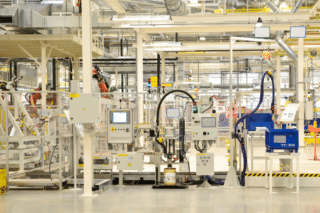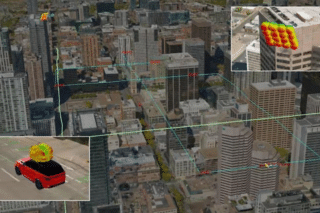Bitcoin has been attracting headlines across the world as observers obsess over its price and banks consider their role in the market. As such, attention is now moving to other options in the world of cryptocurrencies. Ethereum is chief among the Bitcoin rivals, but it is much more than just a currency, experts say.
Both Bitcoin and Ethereum rely on blockchain, a ledger of events which is nearly impossible to tamper with since it is distributed across thousands of computers. But there are important differences. Ethereum is an open-source platform and operating system on which developers can build applications. Ether is the cryptocurrency built on the Ethereum platform.
Ethereum was first developed by Russian-Canadian coder Vitalik Buterin. The system went live in 2015 with 11.9 million Ether coins “premined” for the crowd sale. But it was in 2016, with the formation of the Ethereum Enterprise Alliance that the credibility of serious business applications built on the platform began to improve. Alliance members included Cisco, Intel, BP and JPMorgan.
Business Applications
Supporting a crypto-currency is just one of the things Ethereum can do, says Dr Kevin Curran, senior member of the Institute for Electrical and Electronic Engineers and professor of cyber security at Ulster University.
Bitcoin is a store of wealth. It is an attempt to create a decentralized digital currency fit for the real world and it’s largely successful. Ethereum, on the other hand, is a platform to create decentralized applications.
Smart contracts are an example of the kind of application businesses may want to run on the Ethereum platform. The contract sets up a list of conditions, which if met, will result in certain actions. For example, if a supplier delivers goods, the buyers can automatically set up the payment process without human intervention, all recorded on the blockchain ledger. Just like in Bitcoin, it is nearly impossible to go back and change the blockchain ledger once it has recorded events.
Suman Das, chief technology officer at MLG Blockchain Consulting, says the advantage of the Ethereum platform is that developers do not have to create a new blockchain for every application, making development more efficient.
But there is a disadvantage, if developers misuse resources, or create buggy code, it can create a drain on the blockchain.
Remaining Critics
Ethereum still struggles with some of the same critics as Bitcoin, Curran says.
Bitcoins are created by “mining” a mathematical puzzle, which takes computing power, for which miners are rewarded. Ethereum tokens are created in a similar way. Because of the huge amounts of energy involved critics have raised concerns about the environmental impact, as well as the time required for the process.
But Curran says there is a move away from proof of work required from Bitcoin miners, to proof of stake, whereby a participant’s wallet could be confiscated if they have not lived up to their role in the system.
As these issues are ironed out, applications built on distributed platforms like Ethereum’s promise to transform the way companies share information, capital and intellectual property across supply networks. But it will take time, Curran says.
Every manufacturer will be part of a blockchain application in the future, enabling global supply chains. But a big paradigm change takes time. Even the shift to cloud computing was gradual. It has taken more than a decade and is still evolving.
On the Market
Real-world applications built on Ethereum are already hitting the market. For example, Grid+ hopes to help save its customers money on their home energy use. Its in-home technology uses Ethereum to automate payment, cutting administrative costs. It has developed a smart agent to make real-time purchasing decisions, giving customers the cost-effective price for their demand. Those with solar power or energy story can sell back to the grid at the best price possible.
Ethereum is still in its infancy as an enterprise technology. While attention has been focused on its cryptocurrency, it is Ethereum’s ability to support applications relying on an immutable blockchain ledger that is likely to find use in industrial supply chains and consumer industries alike.










